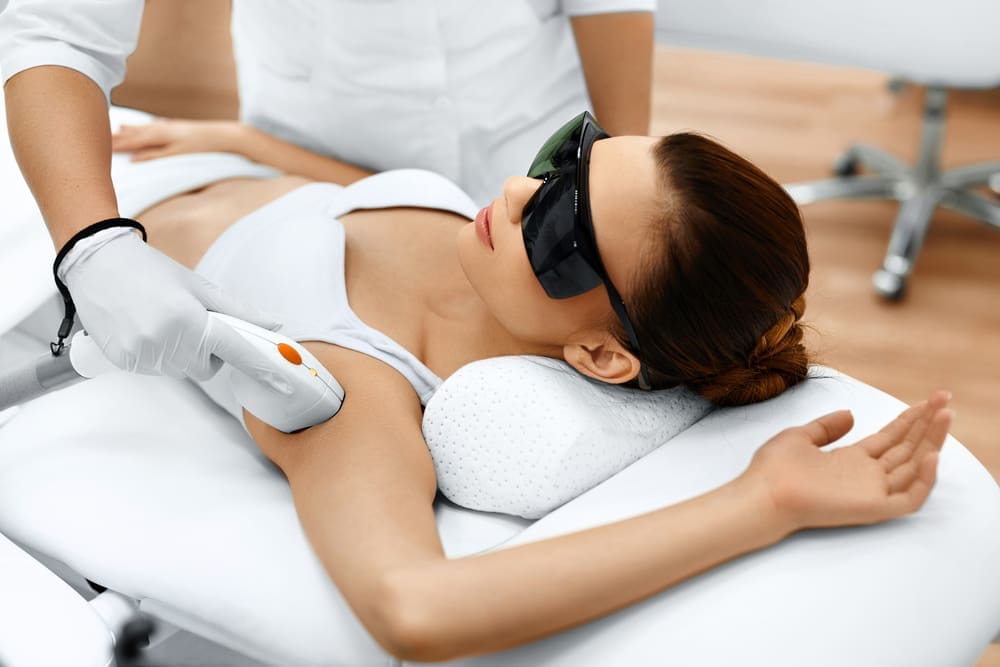Laser Hair Removal Contraindications
About Contraindications for Soprano ICE Platinum Laser Hair Removal
What Are Contraindications?
Understanding what Contraindications are
Contraindications are specific conditions or factors that make a particular treatment unsuitable or potentially harmful for an individual. Understanding these contraindications for laser hair removal ensures the safety and effectiveness of the procedure, minimising the risk of side effects or complications.
About Contraindications
About Contraindications for Soprano ICE Platinum Laser Hair Removal
Laser hair removal has become an increasingly popular method for achieving smooth, hair-free skin. However, as with any medical or cosmetic procedure, it’s essential to be aware of the contraindications and potential risks involved. This article will discuss the various contraindications for laser hair removal, helping you make an informed decision about whether this treatment is right for you.

Contraindications
Contraindications for Soprano ICE Platinum Laser Hair Removal
- Pregnancy: Laser hair removal is not recommended for pregnant women due to the lack of research on the potential effects of laser treatment on the developing foetus. It is best to wait until after pregnancy and breastfeeding to undergo laser hair removal.
- Skin infections or inflammation: Active skin infections, such as cold sores, herpes, or impetigo, or inflammatory skin conditions like psoriasis and eczema, can increase the risk of complications during laser hair removal. It’s essential to wait until the infection or inflammation has resolved before undergoing treatment.
- Use of photosensitising medications: Certain medications, including some antibiotics, antidepressants, and acne medications, can increase the skin’s sensitivity to light, increasing the risk of burns or other side effects during laser hair removal. Consult with your healthcare provider to determine if your medications could pose a risk and whether it’s safe to proceed with treatment.
- Recent sun exposure or tanning: Excessive sun exposure or tanning (including the use of tanning beds or self-tanning products) can increase the risk of burns and pigmentation changes during laser hair removal. It’s crucial to avoid sun exposure and tanning for at least 2-4 weeks before and after treatment.
- Light hair colour: Laser hair removal is most effective on dark hair, as the laser targets the melanin pigment within the hair follicle. Individuals with blonde, grey, or white hair may not achieve significant results with laser hair removal.
- History of keloid scarring: If you have a history of keloid scarring—a type of thick, raised scar that can form after injury or surgery—laser hair removal may not be suitable, as it could trigger the formation of new keloids.
- Certain medical conditions: Some medical conditions, such as lupus, vitiligo, or epilepsy, may increase the risk of complications during laser hair removal. Consult with your healthcare provider to determine if your medical history makes laser hair removal unsafe for you.
- Recent use of hair removal methods that affect the hair follicle: Waxing, plucking, or electrolysis can temporarily remove the hair follicle, making laser hair removal less effective. It’s essential to wait at least 4-6 weeks after using these methods before undergoing laser treatment.
Conclusion
Conclusion About Contraindications for Laser Hair Removal
While laser hair removal is a safe and effective option for many individuals, understanding the potential contraindications is crucial to ensure the best possible outcome. Please contact our Victoria Laser Clinic to speak to one of our expert Laser Therapists who will be happy to answer any questions you may have.
